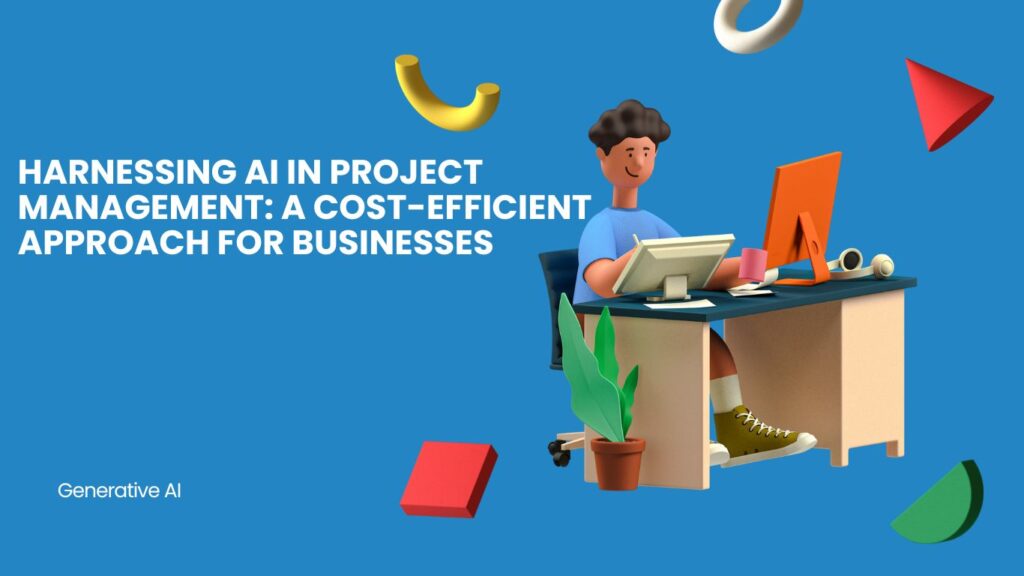AI Project Management

Introduction: In the ever-evolving landscape of project management, Artificial Intelligence (AI) emerges as a game-changer, offering unprecedented opportunities to streamline processes and slash business costs. This blog explores the transformative impact of AI in project management, shedding light on the myriad ways it can lead to significant cost savings.
- Automated Task Allocation and Optimization: AI-driven project management systems excel in automating repetitive and time-consuming tasks. By intelligently assigning tasks based on team members’ strengths, availability, and historical performance, businesses can optimize resource utilization and minimize labor costs.
- Predictive Analytics for Resource Planning: AI empowers project managers with predictive analytics, facilitating accurate resource planning. By analyzing historical project data and external factors, AI can forecast resource requirements, preventing overallocation and avoiding unnecessary expenses.
- Enhanced Decision-Making with AI Insights: AI systems can process vast amounts of data to provide actionable insights. In project management, this translates to informed decision-making. By leveraging AI-generated insights, businesses can avoid costly pitfalls, optimize project timelines, and allocate resources judiciously.
- Risk Mitigation and Cost Containment: AI excels in identifying potential risks by analyzing historical project data and external factors. By proactively addressing risks, businesses can mitigate potential issues before they escalate, ultimately saving costs associated with project delays or failures.
- Streamlined Communication and Collaboration: AI-powered collaboration tools facilitate seamless communication among team members. Enhanced communication translates to reduced misunderstandings, faster issue resolution, and overall increased efficiency, leading to cost savings through improved productivity.
- Efficient Time Management: AI-driven project management tools optimize time management by automating time-tracking processes and identifying areas where time can be more efficiently allocated. This ensures that projects are completed within deadlines, preventing costly delays.
- Cost-Effective Maintenance and Support: AI-based systems can predict potential issues within a project, allowing for proactive maintenance. By addressing issues before they escalate, businesses can significantly reduce the costs associated with extensive troubleshooting and emergency support.
- Continuous Improvement through Machine Learning: AI’s machine learning capabilities enable continuous improvement by learning from past project data. This iterative learning process results in more efficient workflows, reduced errors, and, consequently, lower operational costs over time.
Conclusion: In conclusion, integrating AI into project management practices isn’t just about adopting the latest technology—it’s a strategic move toward significant cost reduction and enhanced efficiency. By leveraging AI’s capabilities in task automation, predictive analytics, risk mitigation, and collaborative communication, businesses can optimize their project management processes and achieve tangible, long-term cost savings. As the business landscape continues to evolve, embracing AI in project management becomes not only a competitive advantage but a crucial element in ensuring sustainable growth and profitability.
